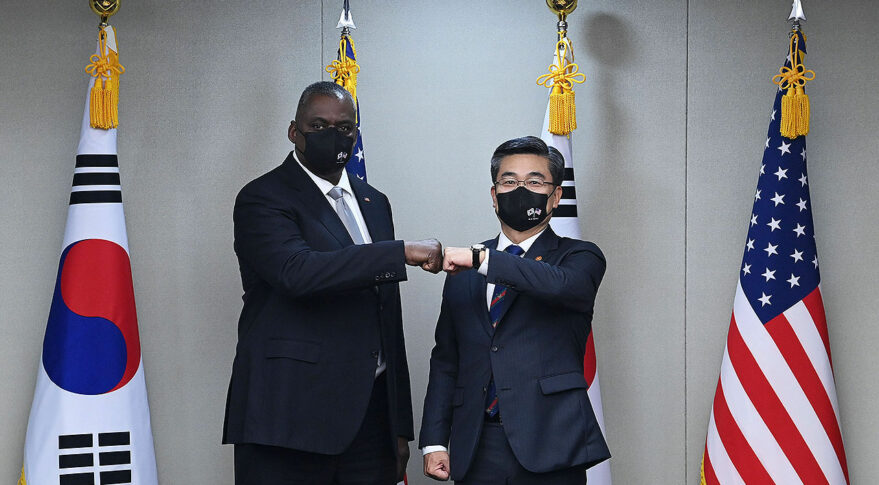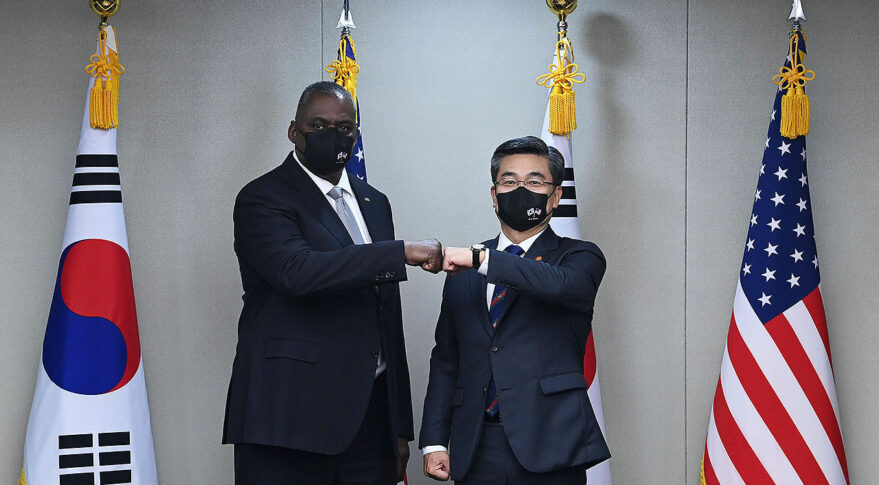
U.S., South Korea agree to cooperate on space situational awareness for military purposes (Image Credit: Space News)

SEOUL, South Korea — The United States and South Korea have agreed to cooperate on space situational awareness (SSA) for military purposes.
The SSA pact is part of a broader space security agreement reached between John D. Hill, U.S. deputy assistant secretary of defense for space and missile defense, and Cho Yong-geun, the South Korean defense ministry’s director of North Korea policy, during the April 25 session of the Space Cooperation Working Group (SCWG) in Washington, according to an April 26 ministry statement. The SCWG is the two countries’ working-level consultative body on space security cooperation that has been operational since 2013.
Under the agreement, Seoul and Washington will “share intelligence about outer space, nurture space experts through training and exercises, and enhance interoperability for combined space operations.”
The ministry said the agreement contains “concrete missions” that will help bolster the two countries’ space security capabilities. A ministry spokesman refused to give more details.
“South Korea first suggested the idea [of space security cooperation] in a February 2020 session, and the two sides have since worked closely to reach an agreement,” the ministry said.
This is the latest in a series of efforts of South Korea to enhance its capabilities for space situational awareness and other space security-related issues.
In August, South Korea’s Air Force chief of staff, Gen. Park In-ho, and U.S. Space Force Gen. John W. Raymond, chief of space operations, sign a memorandum of understanding on forming a joint space policy consultative body at Peterson Air Force Base in Colorado Springs, Colorado. Under the agreement, the two sides have run a joint consultative body on space policy, shared information on space surveillance and worked together to enhance joint space operations capabilities such as missile defense. In line with this, the South Korean air force decided to join U.S. Space Force-led joint military drills.
This was followed by the opening of South Korea first space operations center in Gyeryong, South Chungcheong Province, whose tasks include drawing space policies for the nation’s armed forces as well as enhancing cooperation with domestic and international partners, including U.S. Space Force.
In October, the center’s inaugural chief, Col. Park Ki-tae, said the agreed joint drills would help enhance South Korea’s space situational awareness capabilities.
“One of the primary things we want to achieve through cooperation with the U.S. Space Force is improving our capabilities to detect dangerous objects in space and how to avoid them when they approach our satellites,” Park said during a military technology seminar here. Improved capabilities would also make it possible for South Korea’s air force to issue timely warnings when an object falls to Earth from space, he said.
For its part, he added, the ROK Air Force is building its own SSA infrastructure — including an electro-optical satellite surveillance system, a space weather forecast and warning system and reconnaissance satellites — with the goal of making it fully operational by the mid-2020s. In line with this, South Korea’s Defense Acquisition Program Administration (DAPA) signed a $13.9 million contract with Satrec Initiative in October to develop a space weather forecast system. Once developed, the system will help prevent satellites, high-altitude surveillance drones, and guided weapons systems from malfunctioning due to disruptions that space weather conditions could cause in GPS signals, according to DAPA.
Meanwhile, South Korea’s newly elected president Yoon Suk-yeol said he would “positively review” South Korea’s joining of Quad, a U.S.-led security partnership aimed at countering China, if invited. In a recent interview with The Wall Street Journal, president-elect Yoon, set to take office May 10, said he does not expect South Korea to receive an invitation any time soon, but if approached, “will positively review joining.” In September, leaders of the Quad member counties — the U.S., Japan, Australia and India —agreed to expand the scope of cooperation to include space.








